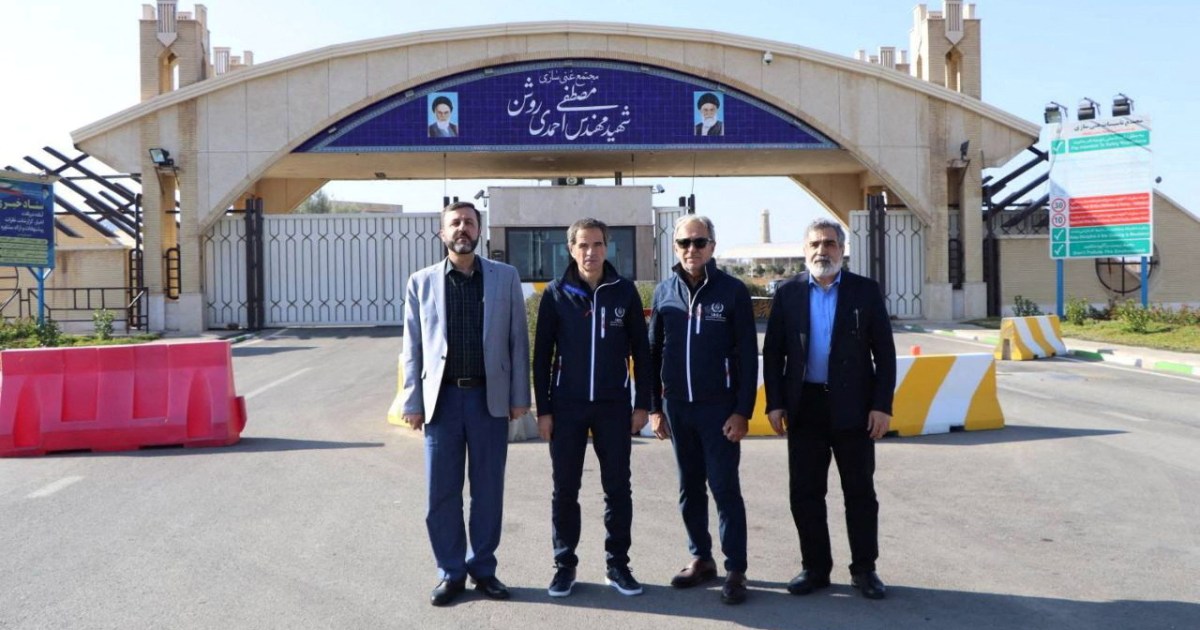Tehran, Iran – Iran has warned three European nations against pursuing a new censure resolution against it at the International Atomic Energy Agency (IAEA) shortly after the head of the watchdog visited Tehran.
Iran’s Foreign Minister Abbas Araghchi condemned efforts by France, Germany and the United Kingdom to pass their fourth resolution since 2020 at the United Nations nuclear watchdog’s board meeting on Wednesday.
“This move by the E3 is in clear confrontation with the positive atmosphere created in engagements between Iran and the IAEA, and will only make the issue more complicated,” Araghchi told his French counterpart Jean-Noel Barrot in a phone conversation, according to Iran’s Ministry of Foreign Affairs.
The latest confidential reports by the IAEA to member states on Tuesday indicated that Iran has offered to not further expand its stockpile of 60 percent enriched uranium, several media outlets, including the Reuters news agency and CNN reported.
Iran has already “begun implementation of preparatory measures” to cap the stock of the high-enriched uranium – which is close to the 90 percent weapons-grade enrichment needed for a bomb – at about 185kg (407 pounds), the global watchdog said, according to the leaked reports.
The offer by Tehran was reportedly made during a visit to Iran by IAEA chief Rafael Grossi last week.
Grossi met Iranian President Masoud Pezeshkian, who told him Iran wants to “resolve doubts” about its nuclear programme, and was permitted tours of sensitive Iranian nuclear sites.
 Pezeshkian, right, meets Grossi in Tehran, Iran, on November 14, 2024 [Handout/Iran’s Presidency/WANA via Reuters]
Pezeshkian, right, meets Grossi in Tehran, Iran, on November 14, 2024 [Handout/Iran’s Presidency/WANA via Reuters]
Tehran has been gradually ramping up its level of enrichment and expanding its stockpiles of fissile material in the aftermath of the 2018 unilateral withdrawal of the United States from Iran’s 2015 nuclear deal with world powers.
Washington embarked on its “maximum pressure” campaign of tough sanctions and military confrontations with Iran based on the argument that the deal – also signed by the E3, China and Russia – that took years to negotiate was weak. It did not offer a replacement.
China and Russia have voted against all other previous censure measures against Iran at the IAEA, including in 2020, 2022 and June 2024.
Iran now has enough fissile material for multiple bombs but has not made the dash for a nuclear weapon, according to the IAEA and Western intelligence.
Tehran maintains that it does not seek a weapon of mass destruction. But political and military officials have increasingly warned that the policy could potentially be reversed if threats from Israel and others grow too large.
The European move to censure Iran at the IAEA meeting comes amid escalating tensions amid the wars in Gaza and Ukraine.
In his call with the French foreign minister, Iran’s Araghchi again condemned new European sanctions on Iran’s national airlines and shipping companies based on claims that Tehran has sent ballistic missiles to Russia for use against Ukraine, and said Western parties bear responsibility for backing the “genocide” in Gaza.
